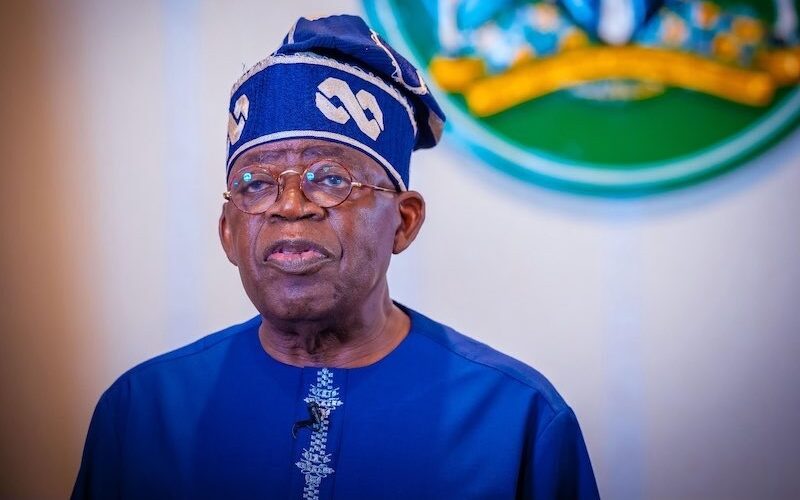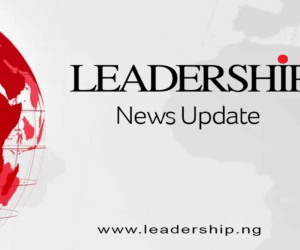President Bola Tinubu has urged Nigerian judges to safeguard the integrity of the judiciary, saying public confidence in the courts depends on fair and untainted interpretation of the constitution.
Speaking at the opening of the 2025 All Nigerian Judges Conference at the National Judicial Institute in Abuja, the president warned that public perception of the bench should concern every judicial officer, especially at a time when the nation’s democracy depends heavily on trust in justice institutions.
President Tinubu’s Special Adviser on Information and Strategy, Bayo Onanuga, shared excerpts of his remarks in a statement on Monday.
The president said the theme of the biennial conference, “Building a Confident Judiciary,” reflected widespread concerns among citizens about delays, integrity, and access to justice.
“A judgment may be grounded in law and delivered with clarity, but unless the public perceives it to be fair, impartial, and untainted, its moral authority is diminished,” he said.
“The confidence of the people is, therefore, not an abstract aspiration. It is the living measure of the Judiciary’s legitimacy and the true currency of justice.
“We must acknowledge, with candour, that public perception of the judicial process has not always been favourable. Citizens have expressed frustration at delays, concerns about integrity, and anxiety over access to justice.”
He emphasised that the strength of the judiciary rests not in buildings or technology but in the men and women who interpret the law.
“Our judges are the living custodians of justice. The calibre of their work defines the moral strength of the Republic. That is why judicial welfare, training and independence are imperatives,” he stated.
President Tinubu reaffirmed his administration’s commitment to supporting the judiciary with the resources it needs to function effectively.
“Our courts must no longer be places where cases languish for years. They must become beacons of efficiency, where disputes are resolved swiftly, and where litigants depart with renewed confidence in the rule of law,” he said.
He praised the judiciary for its interventions during critical moments in Nigeria’s history, describing it as a stabilising force that has restrained tyranny and preserved constitutional order.
On judicial modernisation, the president said his administration would continue supporting the National Judicial Institute and prioritise technological upgrades across courts.
“Technology is no longer a luxury; it is a necessity. The digitisation of court processes, the adoption of integrated case management systems, and the provision of secure and reliable judicial facilities will receive sustained attention from this administration,” he said.
A transparent, digital judiciary, he added, would strengthen accountability and public trust.
The Chief Justice of Nigeria (CJN), Kudirat Kekere-Ekun, thanked the president for his support of the justice sector.
She said the conference offers an opportunity for judicial officers to reflect, collaborate and adopt strategies that reinforce integrity and public confidence.
“The temple of Justice trembles where justice is denied. We must be a symbol of incorruptible honour,” the CJN said.
Former and serving Chief Justices of Nigeria, Justices of the Supreme Court and Court of Appeal, heads of courts and judges from across the country attended the biennial conference.
Confidence crisis
Public confidence in Nigeria’s judiciary remains low, according to a 2025 survey by the Africa Polling Institute.
The study found that 79 per cent of Nigerians have little or no trust in courts, citing delays, perceived corruption, and limited access to justice as primary concerns.
Analysts say this trust deficit directly affects the legitimacy of judicial decisions and the public’s faith in the rule of law.
Judicial delays and case backlogs have continued to exacerbate the problem.
Reports indicate that over 243,000 cases were pending in superior courts of record as of early 2024, while litigants frequently waited years for resolutions.
Mrs Kekere-Ekun has repeatedly warned that prolonged delays erode public confidence and undermine Nigeria’s democratic stability.
She noted that courts that are slow or congested risk diminishing both access to justice and societal trust.
Corruption and inefficiency remain key challenges in the judiciary. Civic surveys, including those by HEDA, reveal that almost half of the citizens who interacted with the courts admitted to paying officials to expedite processes.
Also, the allegations of bias and bribery continue to be reported, indicating the urgent need for institutional reforms to safeguard judicial integrity.
The HEDA report noted that observers stress that without addressing these systemic weaknesses, public perception will continue to suffer.
READ ALSO: Tinubu hosts Duke of Edinburgh, explains Nigerias economic reforms
There have been some reforms aimed at tackling the challenges. The judiciary is gradually transiting to digital processes and procedures, including e-filing, virtual hearings, and integrated case management systems.
The National Judicial Institute continues to train judges, promote ethics, and improve procedural efficiency.
Experts and judicial leaders warn that a strong, transparent, and efficient judiciary is indispensable for national stability.










